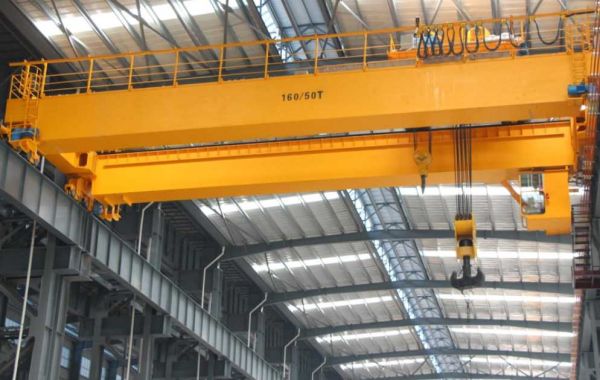Selecting the right overhead crane supplier is a critical decision for any business, especially for industries that rely on heavy-duty lifting operations, such as manufacturing, construction, and logistics. An overhead crane is not just a significant investment; it’s a crucial piece of equipment that directly impacts productivity, safety, and efficiency. Therefore, partnering with the right supplier can make all the difference in ensuring long-term success. But with so many suppliers offering various crane solutions, how can you be sure you're making the best choice? In this article, we will explore key factors to consider when choosing the right overhead crane supplier for your business.
1. Assess Your Specific Needs
Before you even begin evaluating suppliers, it’s essential to clearly define your overhead crane requirements. Start by analyzing the following:
- Lifting capacity: What weight range does the crane need to lift? For example, does your operation require a 5-ton crane for light-duty tasks or a 40-ton crane for heavy lifting?
- Span and lifting height: What are the dimensions of the space where the crane will operate? Make sure the crane's span and lifting height are suitable for your facility's layout.
- Operational environment: Will the crane be operating in hazardous environments, such as a chemical plant or foundry? Specific environmental considerations will dictate the need for specialized cranes, such as explosion-proof or corrosion-resistant models.
- Frequency of use: Consider the crane’s duty cycle—whether it will be used continuously or occasionally. Cranes for continuous use should have a higher-duty classification and enhanced durability.
- Future scalability: Can the crane system be easily modified or upgraded as your business grows?
Clearly understanding your specific operational needs will make it easier to identify the best supplier that offers a tailored solution.
2. Experience and Reputation of the Supplier
One of the most important factors to consider when selecting an overhead crane supplier is their experience in the industry. A well-established supplier with years of expertise will have a deep understanding of different industries’ needs and will be better equipped to offer solutions that fit your specific requirements.
To evaluate the supplier’s experience, consider the following:
- Years in business: How long has the supplier been operating? Long-standing suppliers are more likely to have a proven track record.
- Industry-specific experience: Does the supplier have experience working with businesses in your industry? Specialized knowledge can ensure that the crane design and installation are aligned with industry standards.
- Client testimonials and case studies: Review feedback from previous clients. A reputable supplier should be able to provide case studies that highlight successful projects similar to yours.
- Certifications and compliance: Check if the supplier adheres to recognized industry standards, such as ISO certifications, CE marks, and compliance with international crane standards like FEM or CMAA.
A supplier with a solid reputation for reliability and expertise can provide peace of mind and confidence in their ability to deliver high-quality crane solutions.
3. Customization Capabilities
Overhead cranes are not one-size-fits-all equipment. Your business may require specific features or configurations that off-the-shelf solutions cannot provide. Therefore, you should look for a supplier that offers customized crane solutions tailored to your unique needs.
Some suppliers specialize in providing modular crane systems that can be easily adapted, while others offer fully custom designs. Ask about the supplier’s flexibility in terms of:
- Crane design: Can the supplier tailor the crane’s design to fit your facility’s space and operational requirements? This might include modifying the crane’s span, height, or weight capacity.
- Add-on features: Does the supplier offer additional features like remote controls, anti-sway technology, variable frequency drives (VFDs), or automation?
- Material choices: In some environments, you may need cranes made of special materials, such as corrosion-resistant coatings for chemical plants or galvanized components for outdoor use.
Choosing a supplier that can customize their cranes ensures that you get a solution specifically designed for your business, rather than trying to fit your operations to a pre-existing crane system.
4. Quality of Equipment and Manufacturing Process
When investing in an overhead crane, you want to be assured of its long-term durability and performance. One way to guarantee this is by focusing on the supplier’s manufacturing quality and processes. High-quality cranes minimize downtime, reduce maintenance costs, and offer better overall performance.
Here are a few questions to consider regarding equipment quality:
- What materials are used? The type and quality of materials used in the crane's construction, such as high-grade steel or specialized components, will affect its longevity and reliability.
- Where is the crane manufactured? Is the supplier’s manufacturing facility certified to meet international quality standards?
- What testing procedures are followed? Ensure the supplier conducts load testing and performance checks before delivering the crane. Cranes must undergo rigorous testing to ensure they meet the rated load capacity and safety requirements.
The best suppliers will be transparent about their manufacturing processes and willing to provide detailed documentation on the quality standards their products meet.
5. After-Sales Service and Support
A critical aspect of choosing the right overhead crane supplier is their after-sales support. A crane’s life doesn’t end with its installation—it requires regular maintenance, inspections, and potential repairs over the years. An excellent supplier should provide robust after-sales service to ensure the crane continues to operate at peak performance.
Evaluate the supplier’s after-sales support by asking the following:
- Warranty: Does the supplier offer a comprehensive warranty on their cranes? How long does it last, and what does it cover?
- Maintenance services: Do they offer routine maintenance plans? Regular inspections can help identify potential issues before they lead to costly breakdowns.
- Spare parts availability: Does the supplier stock and supply spare parts quickly, ensuring that any downtime is minimized?
- Technical support: Is there a 24/7 technical support team available to troubleshoot problems? How responsive is their customer service?
- Training: Does the supplier offer training for your operators and maintenance staff? Proper training can enhance safety and efficiency.
A supplier that offers excellent after-sales service will help extend the lifespan of your overhead crane and minimize costly interruptions in your operations.
6. Cost and Value for Money
While cost is a significant consideration, it should not be the sole deciding factor when choosing an overhead crane supplier. Cheaper doesn’t always mean better. The focus should be on value for money, considering the crane's overall quality, customization options, and the level of service provided by the supplier.
Here’s what to keep in mind:
- Initial purchase price vs. lifetime cost: Consider not only the upfront cost of the crane but also the long-term operational costs, such as energy efficiency, maintenance, and downtime.
- Return on investment (ROI): A higher-quality crane may cost more initially, but it will often deliver better performance and have a longer lifespan, leading to a higher ROI over time.
- Hidden costs: Be aware of any hidden costs, such as shipping, installation, or extra fees for customization and after-sales service.
When comparing suppliers, balance price with the quality of service and equipment you’re receiving to ensure you make the best long-term investment for your business.
Conclusion
Choosing the right overhead crane supplier for your business is a crucial decision that involves careful consideration of various factors, from your operational needs to the supplier’s experience, customization capabilities, and after-sales support. By evaluating potential suppliers based on the criteria outlined above, you can ensure that you invest in a crane system that will enhance your operations' safety, efficiency, and productivity while providing long-term value for your business.








